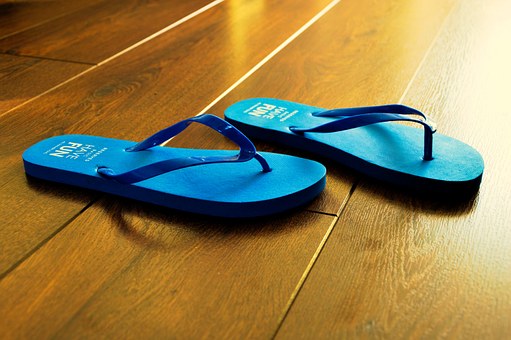As the summer weather continues, many people will be driving their cars in attire which they do not usually wear. Now, drivers wearing flip-flops can face a £5,000 fine and nine penalty points. As the temperatures ascend in Birmingham, residents may wear a string vest and a pair of swimming shorts. Others, meanwhile, may wear flip-flops for their journey down to the supermarket – or else go entirely barefoot.
The real question is – what does the law state about driving in a particular piece of footwear? Rule 97 of the Highway Code instructs drivers that they must have “footwear and clothing so that does not prevent you from accurately using the controls”.
According to the Driving Standards Agency, the controlling body for UK driving tests: “Suitable shoes are particularly important behind the wheel.
“We would not acclaim driving barefoot, because you don’t have the same braking strength with bare feet as you do with shoes on.”
RAC extended their approval for choosing footwear while driving, stating: “Light and flimsy footwear can be dangerous.”
It’s essential to have an excellent grip to apply pressure to the pedals, but you need a certain degree to operate the controls. If not, you could press down the brakes and accelerator together, producing a heart-in-mouth situation. You would not go for a jog wearing flip flops or high heels, so why wear them when you are behind the wheel.
Flip flops could slip off and can become wedged under pedals or prevent you from pressing the brakes. Drivers can face a £100 fine on-the-spot and three penalty points, but some cases in court are challenged. The charge can attract a maximum £5,000 fine, up to nine penalty points and even a court-imposed driving ban.
By Tauseef Asif












